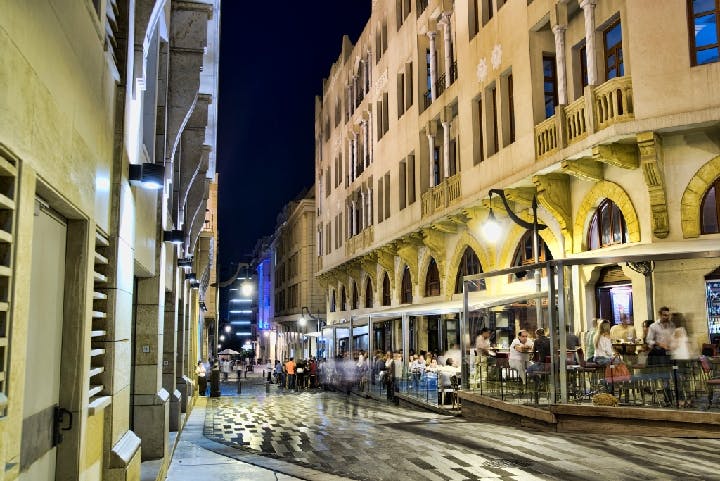Spring 2008
Hanging Out With Hezbollah
– The Wilson Quarterly
In Beirut, many entrepreneurs have decided that there are rich rewards in opening entertainment venues catering to Shia clientele. Even Hezbollah is getting into the act.
When the real estate market took a dive in Beirut a decade ago, developers moved to diversify their investments by filling a new market niche. In the city’s Hezbollah-dominated southern suburbs, they figured out a way for Shia Muslims to relax, piously.
They are building Internet cafés such as Café.Yet and hotel and restaurant complexes such as the al-Saha Traditional Village in the dense urban precincts where hala islamiyya, or Islamic ambience, prevails. Like their Christian counterparts in the United States, Lebanon’s Muslim entrepreneurs are erecting summer camps and fitness clubs in hopes of attracting religiously minded young people. They open beaches, public gardens, and amusement parks that comply with Muslim customs. Snack bars and upscale restaurants feature modern décor, high-quality food, coffee, and hookahs, write Lara Deeb and Mona Harb, of the University of California, Irvine, and the American University of Beirut, respectively.
Rising incomes—powered by foreign remittances, high rates of return emigration, better education, and more stable governance in recent years—have created a generation of young, media-savvy consumers in the stronghold of Hezbollah—which is considered a terrorist organization by the United States but runs municipal governments in parts of Lebanon.
The new shops and cafés forswear alcohol and non-halal meat, and ban singing that is considered seductive and conducive to dancing. Commonly understood rules prohibit unrelated men and women from touching or sitting too close to one another. Women’s beaches are screened from men’s. Some women’s pools are designed so that views from land, sea, or air are obstructed. A few Internet cafés feature booths where pious women can surf the Web with propriety.
Hezbollah itself has built “political entertainment” sites, specializing in summer camps and exhibitions showcasing the exploits of its militia, the Islamic Resistance.
The party has tried to keep the Shia leisure industry, which took off between 1998 and the Israeli-Lebanese war of 2006, in line with Hezbollah’s notions of correct Islamic behavior. It has encouraged informal boycotts of cafés and restaurants it considers too loose. Shia scholars regularly rule on whether certain establishments comply with religious law—although they often disagree on what is “appropriate.” In a surprising number of instances, the authors report, young people have been tougher judges than the scholars.
* * *
The Source: "Sanctioned Pleasures: Youth, Piety, and Leisure in Beirut" by Lara Deeb and Mona Harb, in Middle East Report, Winter 2007.
Photo courtesy of Flickr/Ahmad Moussaoui
